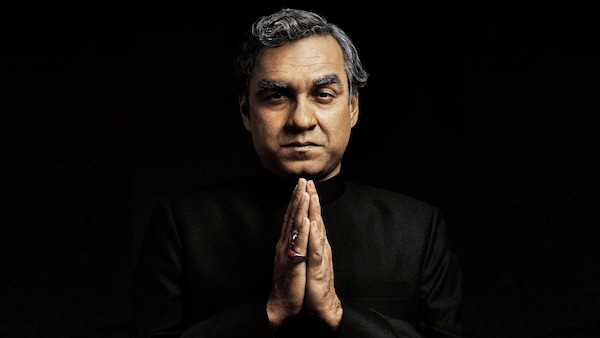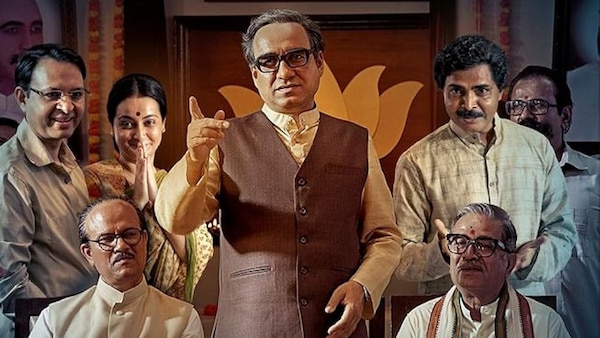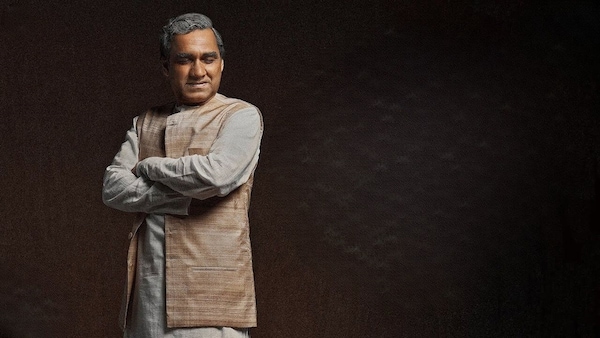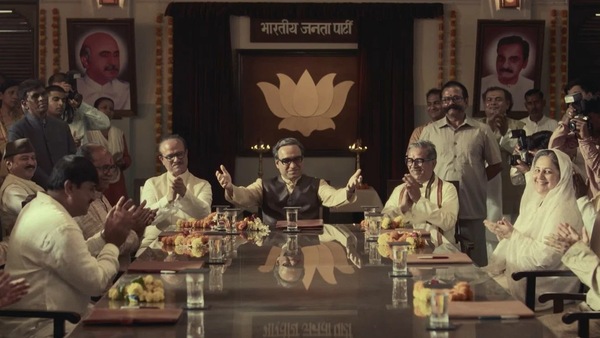Main Atal Hoon: A Sham Of A Biopic That's A Disservice To Vajpayee
This is #CriticalMargin, where Ishita Sengupta gets contemplative over new Hindi films and shows.

Last Updated: 04.42 PM, Jan 20, 2024
THIS YEAR started with hope. The second week of January witnessed the release of Abhishek Chaubey’s Killer Soup and Sriram Raghavan’s Merry Christmas. Both outings were inventive, fun, and reiterated the merit of the filmmakers helming them. But more than anything else, they offered relief at a time when political extremism has infiltrated Hindi cinema. One could watch them without holding one’s breath and worrying about the many different ways they are espousing propagandist politics. But by the third week and with the release of Ravi Jadhav’s Main Atal Hoon, a shamelessly agenda-driven film that exists to only needle and provoke, the reassurance has already begun to feel like an anomaly.
Touted as a biopic on India’s former Prime Minister Atal Bihari Vajpayee, Jadhav’s film is anything but that. Granted it focuses on Vajpayee but the gaze is perfunctory, an excuse really to outline a glossed over portrait of India pre and post Partition that villanises anyone and everyone who is not Vajpayee and from his party. The dishonesty shows in the way the film reduces the depiction of the enigmatic figure and his equally riveting life to Wikipedia entries. Jadhav’s film presents nothing about Vajpayee’s life that is already not known or is in the public domain.

To be fair, Hindi films largely suffer from the problem of glorification. They tend to exalt the person the story is based on. Take Meghna Gulzar’s recent Sam Bahadur for instance, which presented an uncritical portrait of Field Marshal Sam Manekshaw. But Jadhav’s film goes above and beyond in its idealisation of Vajpayee and his ideals. The film opens with when he was little. Everyone knows he was a poet but Main Atal Hoon includes a scene when a young Vajpayee stumbles before a crowd nervously and it takes one conversation with his father (Piyush Mishra) for him to become an orator. Such shorthand is used freely and excessively throughout the film.
The implication is not just that Vajpayee could do no wrong and did no wrong but also that everyone around him did. By the time he is shown to be part of active politics, Congress, the opposition party, is reduced to a joke. Jawaharlal Nehru is given one and a half of a line and that includes him remarking to someone that Vajpayee will be the future PM of India. Everything the then government (Congress) does is depicted as against the interest of the people. But the film does not possess the acumen or the insight to expand on it. All we see is archival footage of poor people and a thoughtful Vajapyee writing poems on it.

This goes on for a while, including a montage of his early RSS (Rashtriya Swayamsevak Sangh) days where he spent his formative time training in the right wing organisation. It is scored to a song that says, “Hindu tan man, Hindu jivan” (“Being a Hindu is my heart and in my being”). It is only as the film unfolds that its real intent comes to focus where it culminates as the origin story of the current government. The way it is done is so tactless and to reiterate, shameless, that the fact that we are watching a supposed biopic of a revered man feels like a sham.
By the time the second half starts, all semblance of pretence washes away. Contentious incidents from the past are mined, including Ayodhya and Ram Mandir, but at all times the only community shown to be facing the wrath of the police force is the Hindus. With every passing minute Main Atal Hoon gets progressively worse and enters into parody territory in the way it portrays Indian scientist and former President of India APJ Abdul Kalam (the character is given a large wig), and Sonia Gandhi. The latter is depicted as one of the evil Britishers who never left India.

In a film designed as revelations of true intentions, it reserves the biggest one for the lead actor: Pankaj Tripathi. It has been a while since Tripathi has given one memorable performance but somehow his reputation as an actor remained unvarnished. It probably has much to do with how loved he is as a person and how sensible he comes across in interviews. Our appreciation for his merit has become an amalgamation of perception and reality.
In Main Atal Hoon, where he plays the titular character, the facade begins to show and a terrible apprehension knocks at the door: maybe we always assumed Tripathi to be a better actor than he was. The actor essays Vajpayee right from his youth, a terrible decision really for the difference in age between him and the character. But by the time the narrative progresses, Tripathi’s portrayal of Vajpayee feels like a mockery. He flails his hands, closes his eyes and only falls back upon his faultless diction to secure the part. It is a terrible performance that reduces a multifaceted leader to a caricature and takes on the title of the film as a challenge. Vajpayee did not deserve this and, needless to say, neither did we.

 Premium
Premium